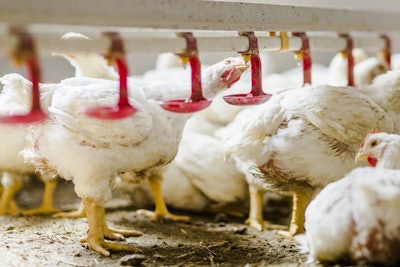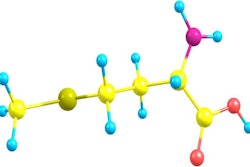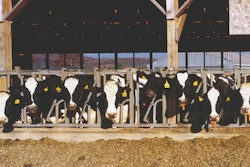
New research suggests heat stress, zinc interact with genes to control appetite in poultry
Is the secret to controlling heat stress in poultry contained in their genes? A new study has identified potentially complex interaction between feed, temperature and appetite genes.
Heat stress consistently reduces feed intake in broiler chickens, and feed intake is controlled by mechanisms involving communication between the gut and the brain, according to Suriya Kumari Ramiah, a researcher at the Institute of Tropical Agriculture and Food Security at University Putra Malaysia. Previous studies have also demonstrated that zinc can alleviate the effects of heat stress in avian species, but the reasons why remain unclear.
New research led by Ramiah and published in the Journal of Animal Science suggests zinc and heat stress may interact with the genes that produce ghrelin and other hormones responsible for triggering hunger and moderating appetite.
In the study, day-old broiler chicks randomly received diets containing variable amounts of zinc oxide nanoparticles. Researchers then alternated between exposing the chicks to normal temperatures, and elevated temperatures intended to induce heat stress. Genes that controlled the production of ghrelin and cholecystokinin, which regulates enzymes in the intestine and pancreas, behaved differently in the chicks fed larger quantities of the zinc oxide nanoparticles.
“These genes are widely distributed in the gastrointestinal tract of broiler chickens and involved as appetite inhibitors,” Ramiah said in an email.
The nanoparticles also appeared to interact with two other genes, HSP 70 and HPS 90, which are also thought to play important roles in preventing cells from heat stress.
However, the nanoparticles did not entirely eliminate the effects of heat stress on appetite-regulating genes, Ramiah said, and the mechanism by which zinc affects these genes remains unclear.
The results point to a complex relationship between genes, heat stress and nutrition, although more research is necessary to further explain the exact nature of that interaction. This future research, Ramiah said, “will help determine the mechanism of how heat stress causes undesirable effects in poultry production” in addition to potentially identifying more targeted means of researching and treating it.














